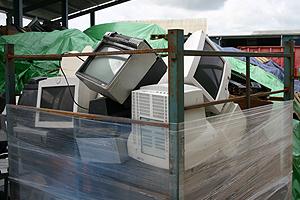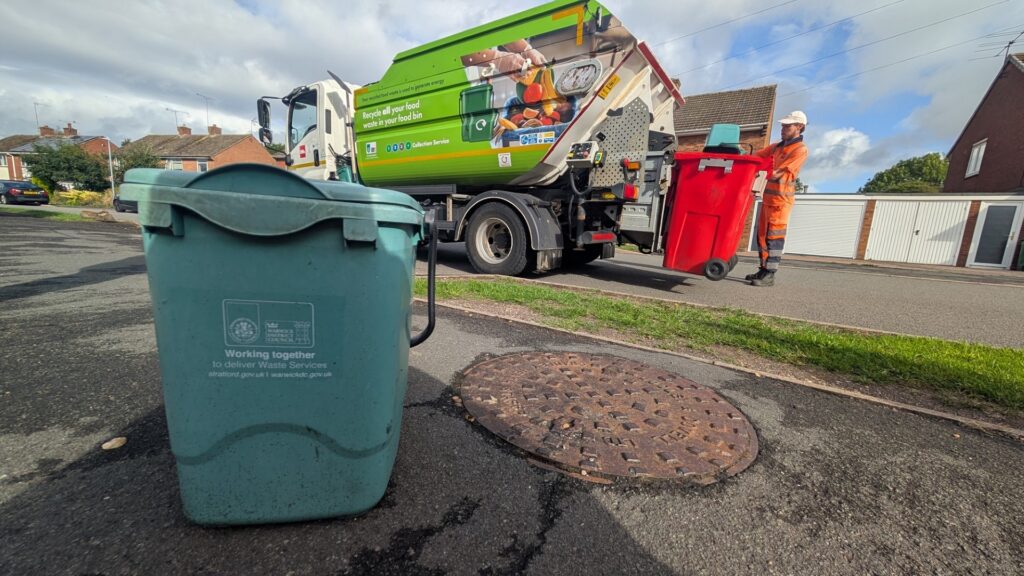For the previous two days of proceedings, please click here for Wednesday and Thursday.
REPIC Ltd, a not-for-profit producer compliance scheme (PCS) formed by household-name electrical and electonic goods producers, says there are simply not enough derelict fridges and computers to go round and, as a result, it is being unfairly threatened with Government enforcement action.
To escape that threat, the company says it is being forced to pay “ransom” money to other PCS's it says are engaged in large-scale “over-collection” of redundant goods, in return for “evidence notes” proving to the Government that its clean up obligations have been met.
REPIC is asking top judge, Mr Justice Wyn Williams, to intervene in the dispute and argues that the unfairness could easily be solved by the Government introducing a price regulatory scheme – or “price cap” – limiting sums that can be charged for evidence notes.
Richard Gordon QC, for REPIC, told the judge the company's aim is to make regulators take effective action to “remedy a real injustice that REPIC and others in a similar position are suffering due to excessive over-collection of Waste Electrical and Electronic Equipment (WEEE).”
Describing the cash demanded by over-collecting PCSs for evidence notes as “ransom payments”, the barrister said the regulatory regime creates a “clear incentive” for some PCSs to “charge high prices, otherwise, we ask forensically, why would they over-collect?”.
“At the root of this claim is a very simple problem, but one that has caused and is continuing to cause serious prejudice to REPIC,” he added.
Judicial Review
REPIC's judicial review challenge is being hotly contested by regulators and by PCSs – Electrolink Recycling Ltd and Wercs Ltd, trading as City Compliance Scheme (CCS) – who say that collection of more waste than the minimum required is lawful and “perfectly compatible” with the regulations.
Government lawyers say there are “reasons to be sceptical” of REPIC's protestations that the system is unfair.
David Elvin QC, for the Department of Business and the Environment Agency, told the judge that some of REPIC's complaints are “exaggerated” and the losses it is suffering are “to a large extent self-inflicted”.
He said the regulations had been drafted in lawful compliance with the EU “WEEE directive” and were designed to give producers, distributors, local authorities and recyclers “freedom to choose” how they comply with their obligations.
At the root of this claim is a very simple problem, but one that has caused and is continuing to cause serious prejudice to REPIC
Richard Gordon QC for REPIC
Describing REPIC's court challenge as “pointless”, the QC said regulators are carefully monitoring the implementation of the regulations and properly considering the possibility of taking enforcement action against those who do not comply.
Mr Elvin said that a bedding down process was inevitable in the early days of the scheme and, on the principle that all operators should be treated equally, no enforcement action had yet been taken against either under-collectors, or over-collectors, of WEEE.
He added that the objective of the regulations is to ensure that collection and environmentally acceptable disposal of WEEE is “financed” by producers and, so far, the scheme had been very successful, exceeding the requirements of the EU directive.
Whilst accepting that large-scale over-collection of WEEE may not be compatible with the regulations, the QC said: “The trading of evidence notes does not undermine the purpose of securing the appropriate collection of WEEE and its subsequent treatment.
“The trading of notes in fact ensures that, where there has been non-compliance with the obligation to collect, there is nonetheless compliance with the obligation in the producers to finance an amount equivalent to the WEEE for which they are responsible.”
“Self-inflicted”
Attacking REPIC's financial losses in the evidence note market as “to a large extent self-inflicted”, Mr Elvin told the judge: “This is a market based scheme and that is a perfectly permissable policy approach.
“Trading in evidence notes is a market mechanism and ensures, through the market, that there is such compliance with the producers' obligations to finance WEEE.
“It is not inconsistent with the terms or purpose of the WEEE directive that the cost of financing the collection and disposal of WEEE should be determined by market forces.
“The market in trading evidence notes is a new one and is likely to settle over a number of years”.
Mr Elvin said the Government accepts that “significant over-collection of WEEE is not consistent with the proper operation of the regulations”.
However, he insisted that “some degree” of trading in evidence notes is “lawful and reasonable in the light of the primary objective of securing the financing from producers of the payment of the costs of collection, treatment etc.”
He also told the judge that, with the weight of so many household name manufacturers – representing 52% of the market – behind it, REPIC has more than enough “wherewithall and clout” to set up its own scheme collecting WEEE directly from householders, but had not done so.
The QC added the Government's approach to enforcement for non-compliance – both by over- and under-collectors – had been “fair and consistent” and a final decision has yet to be made on whether any enforcement action will be taken in respect of the 2008 compliance period.
Although Mr Elvin accepted that there is a “finite” amount of WEEE that can be collected, he said that, despite the success of the regulations, there should still be enough WEEE for REPIC itself to collect in order to reach its quota.
And he said that, just because some operators are “over-collecting”, that does not mean that REPIC has no choice but to pay for evidence notes.
REPIC's complaints of “serious prejudice” and “inherent unfairness” in the system were, said Mr Elvin, “not supported by the facts”.
And, accusing REPIC of “exaggerating” aspects of its complaints and wanting to see the regulations changed “for its own commercial reasons”, Mr Elvin told the judge: “There are reasons to be sceptical of REPIC's protestations”.
After a High Court hearing, spread over three-days, the judge reserved his decision on REPIC's challenge until an unspecified later date.









Subscribe for free